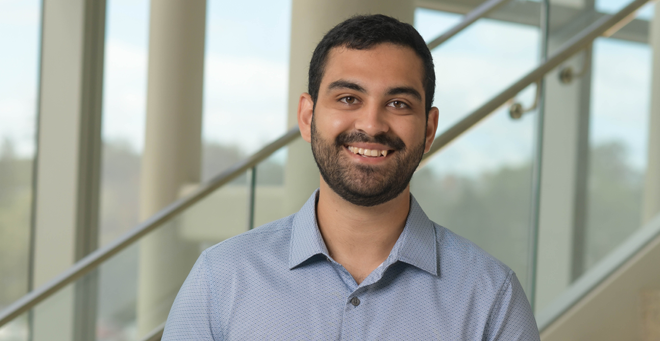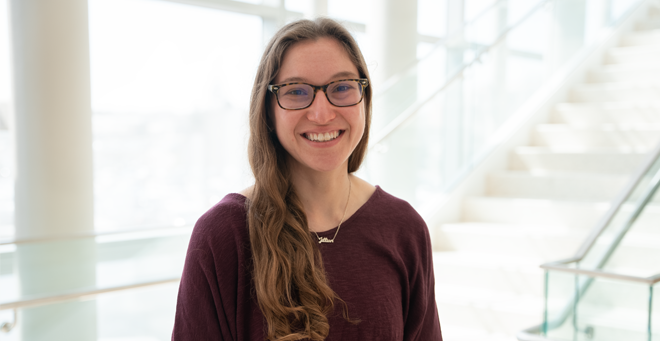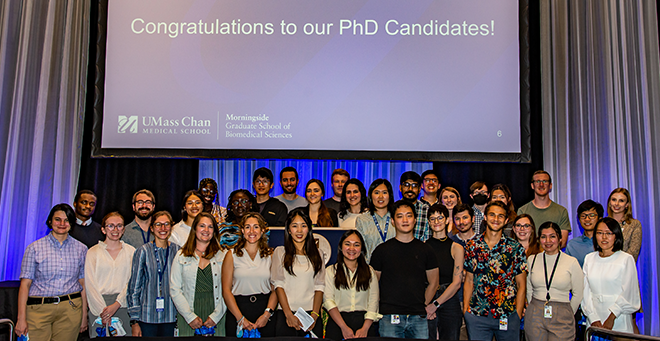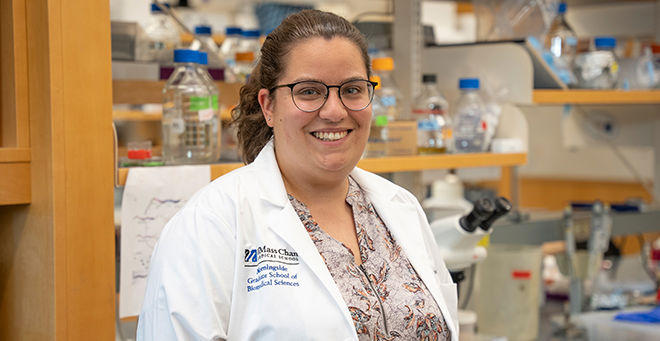
UMass Chan Medical School student Johan Girgenrath has received a competitive Ruth L. Kirschstein National Research Service Award Individual Predoctoral Fellowship from the Eunice Kennedy Shriver National Institute of Child Health and Human Development to conduct fertility research.
Girgenrath, a PhD candidate in the Morningside Graduate School of Biomedical Sciences’ Interdisciplinary Graduate Program, studies small RNA pathways and how they broadly regulate gene expression to promote the fertility of the worm C. elegans and, more broadly, animals in general.
During gametogenesis, organisms use RNA and DNA to ensure proper gene expression and fertility in offspring. Through the funded research, Girgenrath is trying to understand how this happens. Because C. elegans are hermaphroditic, the male and female germlines can be studied simultaneously.
“In the germline, we’re focused on how small RNA pathways, specifically the piRNA pathway, fine-tune gene expression to promote germline fertility. You can silence, or turn off, proteins at the mRNA level or the DNA level, at which point RNA isn’t made from DNA anymore,” Girgenrath explained. “What’s interesting is that the piRNA pathway is utilizing machinery that is present in the somatic tissue where the piRNA pathway is absent. And so the question now becomes, how does the piRNA pathway co-opt this machinery to silence at the DNA level?”
Girgenrath said these pathways promote epigenetic inheritance, meaning things that are inherited through the experiences of prior generations. This is something researchers have seen in children of famine survivors, who have higher rates of diabetes and obesity.
“So not only is it important for fertility, but it’s also important to the health of the offspring,” Girgenrath said.
Girgenrath’s mentor is Nobel Laureate Craig C. Mello, PhD, Howard Hughes Medical Institute Investigator, the Blais University Chair in Molecular Medicine and distinguished professor of RNA therapeutics and molecular medicine.
“Johan’s work could uncover important new insights into how RNA and chromatin work together across generations to ensure robust inheritance,” Dr. Mello said.
Girgenrath grew up in Medway, the son of two scientists. His mother runs a research lab focused on muscular dystrophy. She defended her PhD a week before her son was born. His father is a consultant.
“I’ve always kind of been in the lab, whether in the womb or not,” Girgenrath said. “I grew up hearing things like mitochondria and all these different genes at the dinner table. I think both of my parents were really good at letting my curiosity run wild. That’s also something good about the Mello lab. Craig will let your curiosity run wild and see where it takes you.”
Girgenrath has been with the Mello lab since he was a senior at Worcester Polytechnic Institute, earning his bachelor’s degree in biotechnology. Girgenrath did his major qualifying project in the Mello lab. He then worked as research technician in the lab before enrolling in the PhD program.




